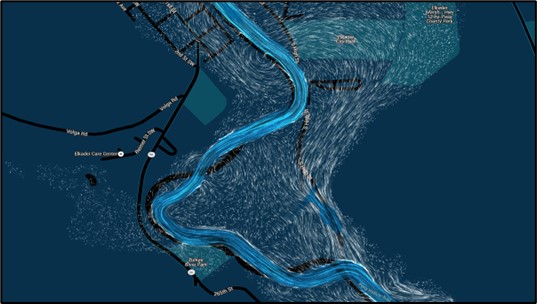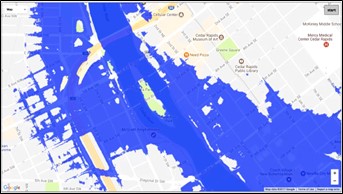Research Team: Bong-Chul Seo
Insitution: University of Iowa, Missouri University of Science and Technology
Start Date: June 1, 2023 | End Date: May 31, 2025
Research Theme:
Streamflow predictions derived from a hydrologic model are subject to many sources of errors, including uncertainties in meteorological inputs, representation of physical processes, and model parameters. To reduce the effects of these uncertainties and thus improve the accuracy of model prediction, the U.S. National Water Model (NWM) incorporates streamflow observations in the modeling framework and updates model-simulated values using the observed ones. This updating procedure is called streamflow data assimilation (DA), and the prediction result of DA is affected mainly by one of the NWM components, the channel routing model. The project assesses an improved channel routing model (i.e., diffusive wave routing) recently developed, compared to the current operational one (i.e., Muskingum-Cunge routing). The primary objective of the project is to demonstrate the operational prediction capabilities of the new model with streamflow assimilation using an extensive network of streamflow observations. The project tests the routing models for a large domain in the Upper Mississippi River Basin (UMRB) centered on Iowa and evaluates the new model’s performance and effect of DA (e.g., upstream and downstream propagation) using data from a massive number of local stage sensors and USGS gauges; the effect of DA with the current model propagates downstream only. The project also examines the potential benefits of the new model for flood inundation mapping evaluation and visualization. Enhanced channel routing is expected to improve the timing of streamflow forecasts, in particular flood waves and flood inundation mapping.

